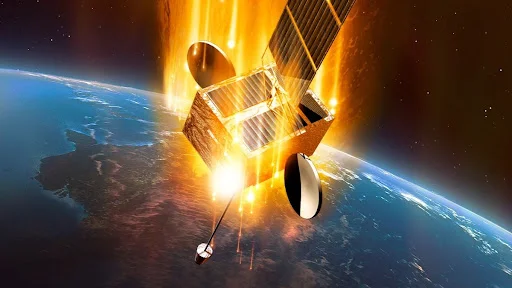Scientists are alarmed by President Trump's proposed budget cuts, which could severely impact satellite-based air pollution studies, particularly those conducted by NASA and NOAA. The cuts, outlined in a 2026 budget proposal, slash NASA’s science budget by 53%, with over half of its Earth science program—crucial for monitoring air quality, climate, and environmental changes—facing elimination. NOAA’s Office of Oceanic and Atmospheric Research (OAR) would see a 74% reduction, from $485 million to $171 million, dismantling key research on air pollution, weather, and climate.
Here's a breakdown of the key concerns:
- Impact on NOAA and NASA: The cuts are primarily targeting the National Oceanic and Atmospheric Administration (NOAA) and potentially NASA, with NOAA facing an estimated $1.52 billion reduction in funding, heavily impacting climate science. NOAA's Office of Atmospheric Research, which oversees projects on rocket and satellite air pollution, is particularly at risk. NASA's science budget could also see substantial reductions.
- Loss of Critical Research: This includes research into the effects of rocket and satellite air pollution on Earth's atmosphere. With a rapid increase in satellite launches and re-entries (e.g., Starlink satellites), scientists are concerned about the release of materials like aluminum, lithium, and other non-naturally occurring elements into the upper atmosphere. Aluminum oxides, for example, are known to cause ozone depletion. Halting this research now, as these emissions are rapidly rising, is seen as a major setback.
- Long-term Repercussions: Experts warn that even if funding is reinstated later, the field will not quickly recover. A pause in research means a halt in data collection, modeling, and the training of the next generation of atmospheric researchers. This could have repercussions for decades, making it difficult to understand and mitigate potential damage from these new forms of air pollution.
- Broader Environmental and Societal Impacts: Beyond satellite-related pollution, the proposed cuts to NOAA and NASA threaten broader climate and weather research. This includes:
- Reduced weather forecasting accuracy: Cuts to NOAA's staff and satellite technology could diminish the ability to provide accurate and timely warnings for hurricanes, tornadoes, and other extreme weather events, potentially leading to increased damage and loss of life.
- Diminished understanding of climate change: The cuts could dismantle key climate research efforts, making the U.S. "blind" to fast-moving environmental threats and undermining its leadership in climate science.
- Impacts on various sectors: Industries such as agriculture, insurance, and emergency management rely heavily on the data and forecasts provided by these agencies. Reduced funding could have significant economic consequences.
- Concerns about "Woke Ideology" Justification: Critics suggest that some cuts are justified by officials as removing "woke ideology," which raises concerns about political interference in scientific research and a disregard for evidence-based policy.
- International Implications: The U.S. plays a crucial role in global climate research and data sharing. Cuts to its scientific institutions could disrupt international collaborations and lead to a loss of U.S. influence in international environmental governance, with other countries potentially filling the void.
Scientists emphasize that these budget cuts are "incredibly short-sighted" because they undermine the ability to understand and address critical environmental challenges that directly impact public safety, economic stability, and long-term planetary health.


